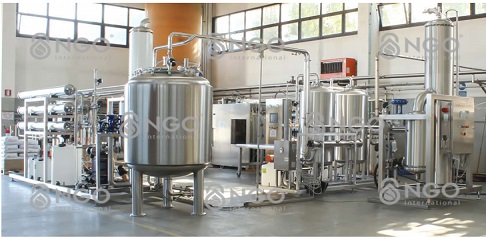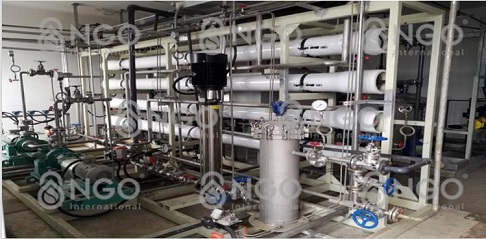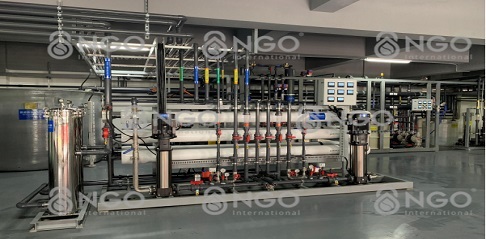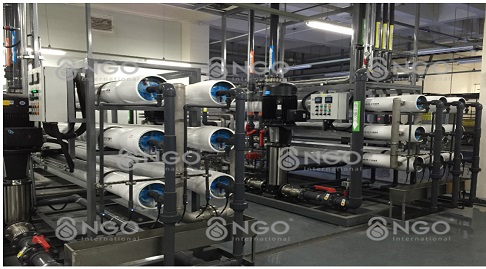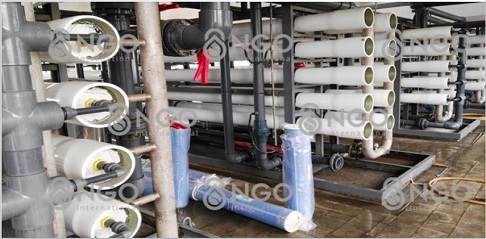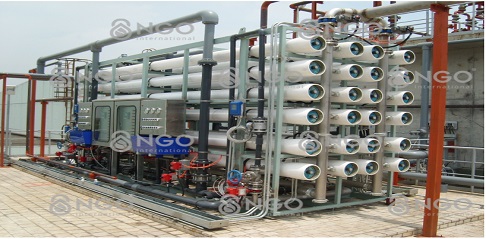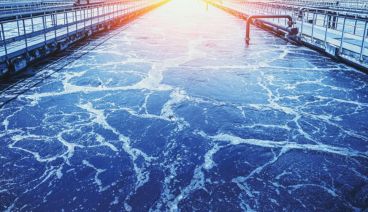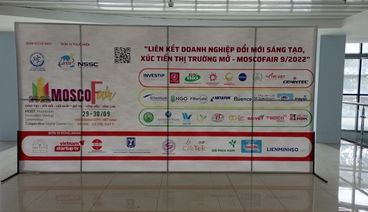WHAT YOU DON'T KNOW ABOUT RO MEMBRANE
1. RO Membrane (Reverse Osmosis) – What is Reverse Osmosis?
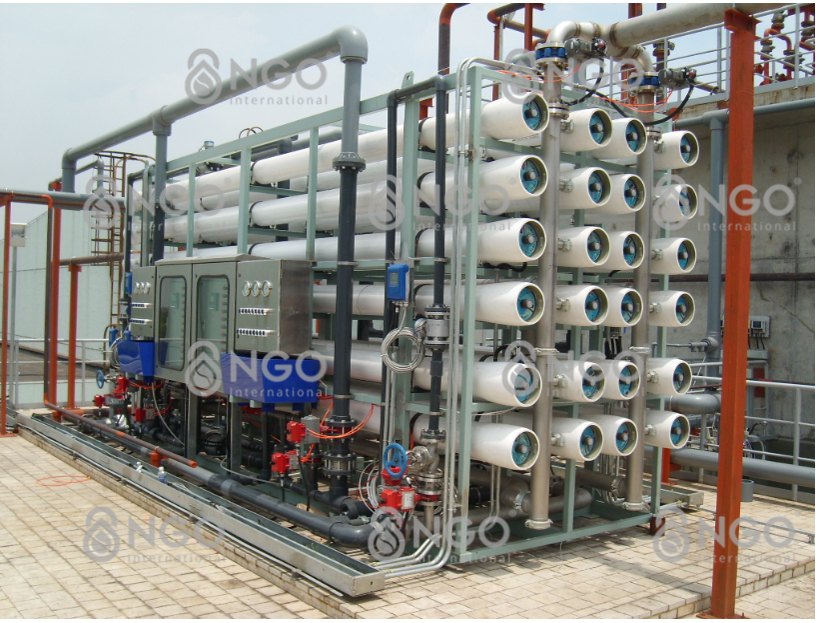
RO membrane is an equipment that treats wastewater or supply water by removing contaminants from water by using pressure to push water molecules through a semi-permeable membrane, the pollutants are filtered out.
It has the ability to remove up to 99.9% organic matter, protozoa, virus, bacteria in water, and remove 95-99.8% dissolved salt, inorganic impurities in source water.
It is widely applied to human life such as producing drinking water or creating purified water for food and pharmaceutical laboratories.
2. What is the function of RO membrane?
With a super small size, from 0.1 to 0.5 nanometers, the filter eye is only a few times larger than a water molecule, meanwhile, dissolved solids, bacteria, viruses are all tens of times larger than metal ions, although small, they are hydrated by the surrounding water molecules, so they cannot pass through the filter. So everything is blocked and pushed out through the wastewater except water molecules.
The water after passing through the RO membrane which is completely pure, with the following characteristics: colorless, odorless, tasteless, bacteria-free, this water source is very safe for health and can be drunk immediately or used to for washing fruits and cooking.
3. What happens to the contaminants that pass through the RO membrane?
As water pressure pushes water through the RO membrane and functional filters, such as sediment or carbon filters, impurities are filtered out and then flushed out. What's left is good and clean drinking water.
4. What factors affect RO membrane performance?
- Water pressure at the inlet of the RO membrane: the membrane works best when the inlet water pressure of the membrane reaches 50PSI – 80PSI. Therefore, you need to ensure that the inlet water pressure of the membrane is always at this level. In addition, the inlet water pressure of the system must be 5 PSI or more, the low pressure valve must be opened for the machine to operate stably.
- Type and amount of dissolved solids in water: each area will have its own water source characteristics, so the impact on the RO system is also different in terms of dissolved solids. In areas of water with high sodium chloride content, the TDS index will fluctuate. If the concentration of TDS/salt increases, it will reduce the amount of water infiltration, and lead to the appearance of a coating on the surface of the RO membrane, which will affect the filtration performance in the long run.
- The quality of the filters and membranes used inside the machine: This is an important factor that directly affects the efficiency and quality of the output water. To achieve the best filtration effect, it is recommended to choose a water purifier with RO filters and membranes of clear origin and origin.
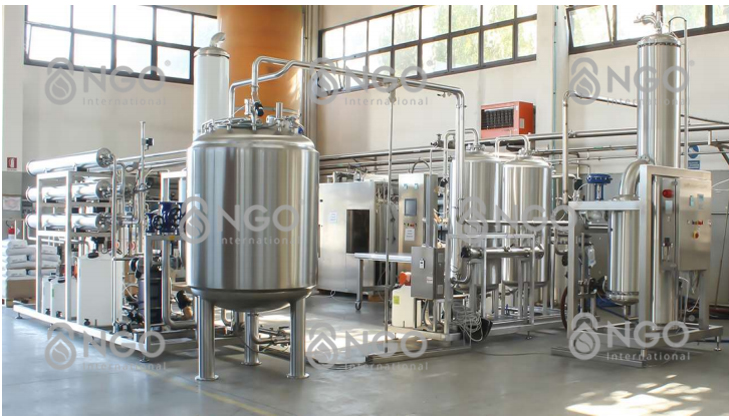
5. Misunderstandings about water quality from water purifiers?
- Can the new generation RO purifiers compensate for minerals?
- Minerals are healthy ions available in water sources. However, if you filter the water with RO, most of the minerals will be lost, and if you use RO filtered water regularly for eating, it also makes the body deficient in minerals.
- Currently, many companies advertise that RO water purifiers with 7 - 10 new generation filters always meet the ability to compensate for minerals, creating a delicious taste for the output drinking water, but this mineral compensation It's not because of different RO filter materials, but because companies add "mineral compensation" components in their equipment, and these minerals are industrial minerals, not natural minerals.
- Will RO filter kill all bacteria and drink from the tap?
- It is true that through RO most bacteria will be eliminated. However, the problem of pipe material, water tank after RO will be the cause of bacteria in the water. Therefore, if the pipes and tank materials are not safe, it is still advisable to boil the water before drinking, or add a UV sterilization equipment at the point of use of the water before drinking.
- It is recommended that you ask a lot of questions with the manufacturer or supplier of equipment before buying to clarify the specifications they advertise. NGO specializes in providing equipment and solutions for each water use requirement of businesses.
thong_tin_lien_quan
Recent post

.jpg)
.jpg)
